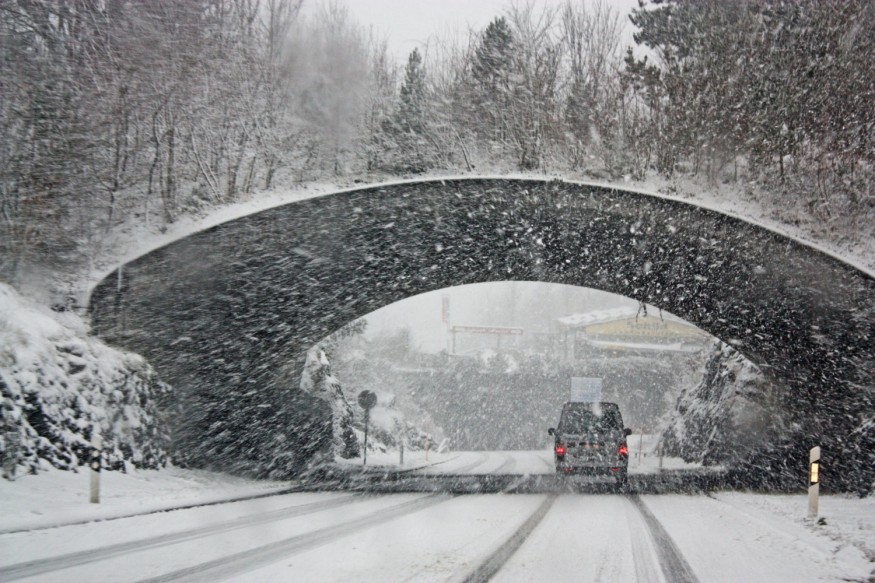For most city dwellers, snowfall isn't all hot chocolates and snowmen. Snowfall also means salt being caked-on to shoes, cars, and clothing hems.

This is mainly due to local governments spreading de-icing salts as soon as precipitation dips below freezing to prevent roads from freezing over.
The Truth About De-Icing Salts
De-icing salts are typically less-refined forms of table salt or sodium chloride (NaCl) and include other materials such as potassium chloride and magnesium chloride. Typically called 'rock salt' due to its coarse texture, de-icing salts work by lowering the water's freezing point.
Unfortunately, rock salt also does extensive damage to automobiles, infrastructure, and the environment. Cities typically use de-icing salts in enormous quantities roughly 20 million tons of rock salts are used in the U.S per year.
Snowbelt cities in Japan, Europe, and Canada also use de-icing salts heavily.
Luckily new options are in the works seeking solutions for overly salted sidewalks by utilizing more natural alternatives.
Looking for a Natural Alternative to Road Salts
Monika Bleszynski, a materials scientist, analyzes how the natural world deals with ice to come up with an alternative to the damaging road salts used in today's roads. Fish, insects, and some plants have learned how to adapt to colder climates over hundred of thousands of years by making their version of anti-freeze agents.
Taking hints from nature, Bleszynski and her team develop effective antifreeze compounds that would be less damaging than the norm.
The Harmful Impacts of De-Icing Salts
Drivers who often venture through icy roads know that road salts reduce cars' longevity by hastening the rusting process. A study published in 2010estiamtes that de-icing salts cost U.S drivers roughly $23.4 billion nationwide annually in vehicle damage due to corrosion.
In addition, road salts also damage surfaces. De-icing salts contain chlorine ions--negatively charged atoms--that alter the chemistry of water, making it more corrosive when in contact with other materials such as steel and concrete.
Because of this, de-icing salts increase existing strains on aging structures. These also contribute to bridge failures and cause cracks and other forms of weathering in highway surfaces.
Additionally, de-icing salts have a widespread effect on the environment. Road salts displace minerals in groundwater and the soil creating conditions called physiological drought.
Natural Alternative Antifreeze
Bleszynski and her colleagues are looking for a way to synthesize antifreeze based on glycoproteins that are less toxic than ethylene glycol that is currently used to prevent car radiators from freezing.
While the technology is still underway, researchers are using advanced computer modeling to understand how antifreeze proteins, delicate entanglement of compounds that hardly survives in the outside world, interacts with water molecules.
Scientists are hopeful that they will produce non-toxic antifreeze based on PVA's that don't degrade too quickly that can equally protect surfaces such as roads, handrails, and side-walks from freezing during the winter.
RELATED STORY : Using Technology to Manage Your Company Fleet
Check out more news and information on Tech & Innovation on Science Times.











